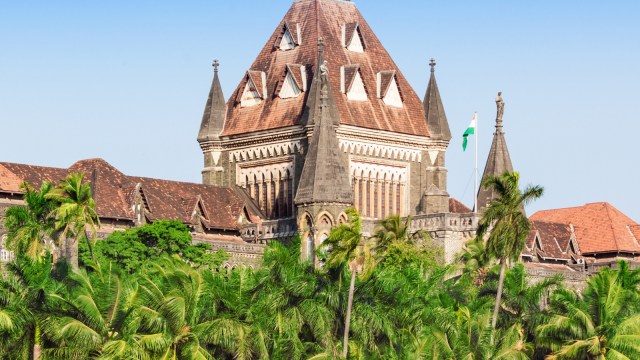Bombay High Court upholds state govt decision letting Maratha candidates apply for jobs via EWS quota
The court held the Maharashtra Administrative Tribunal’s order had deviated from established legal principles and had negatively impacted ‘a substantial number of candidates’.
 A view of the exterior of Bombay High Court, via Canva.
A view of the exterior of Bombay High Court, via Canva.The Bombay High Court on Friday set aside a February 2023 order of the Maharashtra Administrative Tribunal (MAT) related to reservation in state government jobs for candidates from the Maratha community.
In doing so, it upheld the state government’s decision to allow the Maratha candidates, who had originally applied for government jobs advertised in 2019 from the Socially and Educationally Backward Class (SEBC), to do so through the Economically Weaker Sections (EWS) category in the ongoing recruitment process.
The high court held the MAT order discarding the state’s decision deviated from established legal principles and led to “cascading effects and negatively impacting a substantial number of candidates”, therefore, the same should be set aside.
A division bench of Justices Nitin M Jamdar and Manjusha A Deshpande passed a judgment in petitions by over 100 Maratha candidates along with the state government, challenging the MAT order of February 2023 for the posts of sub-inspector/tax assistant and clerk-typist, posts in forest department and engineering services.
The Supreme Court in May 2021 had struck down the provisions of a Maharashtra law (SEBC Act) providing reservation to the Maratha community, which took the total quota in the state above the 50 per cent ceiling set by the court in its 1992 Indra Sawhney (Mandal) judgment. The said law was upheld by the high court in June 2019, which was later challenged in the Supreme Court.
After the Supreme Court struck down the Maratha quota, the state issued government resolutions (GRs) related to public posts advertised in 2019. It extended EWS quota facility to candidates who had initially applied through SEBC category.
The said government decisions were challenged before the MAT by candidates who had initially applied under the EWS category. The tribunal upheld the challenge on February 2, 2023, and disqualified the candidates who had initially applied under the SEBC (Maratha) category.
Aggrieved by the MAT order, the candidates approached the high court. The petitioners claimed the impugned MAT order has “misdirected itself in law and facts”, stating there cannot be retrospective application of impugned GRs.
Advocate General Birendra Saraf and senior advocates V A Thorat and Mihir Desai for the government argued that the advertisements explicitly conveyed that both the posts and reservations were subject to changes.
When the Supreme Court initially directed recruitment without considering SEBC reservations and later invalidated the SEBC Act, eligible EWS candidates were afforded the option to benefit from EWS reservations and the same was not considered by the MAT, the state and petitioners argued.
Justice Jamdar for the bench held that the MAT order “ignored the multi-cadre selection adversely affecting the entire process”. “The generalised observations in the impugned order that SEBC candidates from the Maratha community scored higher marks imply that they were never entitled to SEBC reservation exceeded the scope of the service dispute and were unnecessary,” the bench noted.
The high court said the MAT order deviated from established legal principles and led to “cascading effects and negatively impacting a substantial number of candidates”.
The bench noted that after the SEBC Act was declared unconstitutional, seats reserved for SEBC candidates were integrated into the general category and the candidates who had originally applied to SEBC were allowed to apply under EWS with a “merit-based approach”.
However, the MAT order disqualified the Maratha candidates who belonged to EWS despite securing higher marks, it noted.
“The impugned order thus has created an inequitable situation. The petitioners are entitled to succeed,” the bench concluded.
The high court said that there was no need to maintain a status quo as sought by the respondents as the appointments to be made by the state government can be challenged before the Supreme Court.







